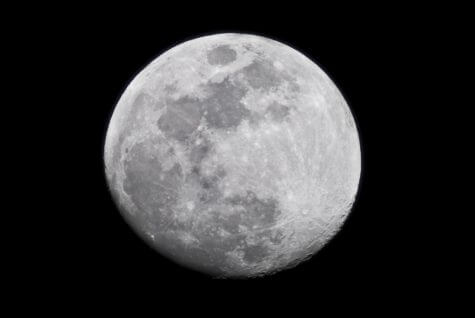PRINCETON, N. J. — Motorcyclists may want to take a peek at sky before hopping on the hog at night. A new study finds that riding a motorcycle during a full moon increases the risk of being involved in a fatal crash.
Researchers at Princeton University and the University of Toronto looked at data from an official U.S. government registry of motor vehicle crashes from 1975 to 2014, which allowed them to calculate the number of crashes on nights with a full moon to those during normal lunar conditions.

Of the 13,000-plus bikers studied who were involved in a deadly collision, nearly 4,500 died on a night during which the moon was fully visible, despite these nights only comprising about one-third of all events examined.
While the disparity found between fatal crashes on full moon and half moon nights wasn’t humongous, it was significant: for every two full moon nights, one additional motorcyclist died from their injuries.
While this research did not explore the causes of fatal accidents on full moon nights, it is believed that rubbernecking at the relatively rare, yet often captivating lunar event may be the primary culprit.
“Drivers face a number of distractions behind the wheel — from texting, to phone calls to road obstructions and more,” says study co-author Eldar Shafir, a professor of psychology and public affairs, in a university news release. “Our study adds to the literature that small distractions can sometimes lead to life-altering consequences.”
Interestingly, supermoons — the lunar phenomenon that occurs about once a year in which a full moon appears even fuller or brighter — were linked to an even greater probability of being the victim of a fatal crash.
On average, there were 10.82 motorcycle-linked deaths across the U.S. every night that a supermoon adorned the sky, compared to 9.10 and 8.64 on nights with a full or partial moon, respectively.
“The average ride on a motorcycle is more dangerous than a drunk driver with no seatbelt traveling the same distance,” says lead author Donald Redelmeier, a professor in the Department of Medicine at the University of Toronto. “Because of this, we recommend riders and drivers orient their attention, ignore distractions, and continuously monitor their dynamic surroundings.”
Further data analysis showed that similar outcomes could be found in the UK, Canada, and Australia, meaning that full moon accidents are not a uniquely American phenomenon.
The researchers emphasize the value of paying constant attention to the road in the presence of any distraction, natural or artificial.
“Additional strategies while riding might include wearing a helmet, activating headlights, scanning the road surface for defects, respecting the weather, being wary of left turning vehicles, obeying traffic laws and foregoing stunts,” they suggest.
The researchers published their findings this month in the journal The BMJ.

The issue is night, not bike. Another worthless study. Probably conducted by a female in her 20’s with little to no experience in life. I cannot imagine that an intelligent person would need to study such a subject to think of a real reason. This kind of thing is why studies have become a joke in the medical community.